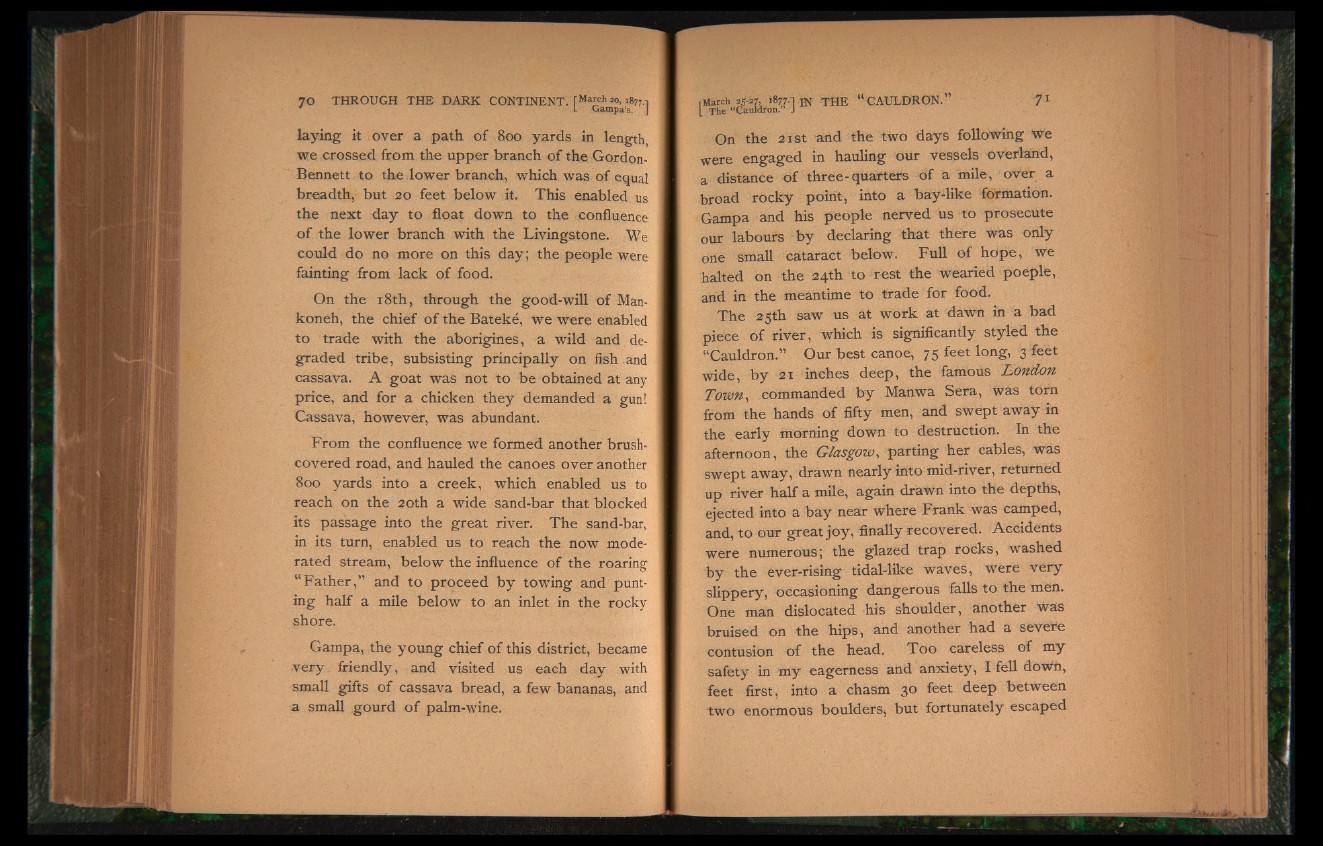
laying it over a path of 800 yards in lengthy
we crossed from the upper branch of the Gordon-
Bennett to the lower branch, which was of equal
breadth, but 20 feet below it. This enabled us
the next day to float down to the confluence
of the lower branch with the Livingstone. We
could do no more on this day; the people were
fainting from lack of food.
On the 18th, through the good-will of Man-
koneh, the chief of the Bateke, we were enabled
to trade with the aborigines, a wild and degraded
tribe, subsisting principally on fish and
cassava. A goat was not to be obtained at any
price, and for a chicken they demanded a gunt
Cassava, however, was abundant.
From the confluence we formed another brush-
covered road, and hauled the canoes over another
800 yards into a creek, which enabled us to
reach on the 20th a wide sand-bar that blocked
its passage into the great river. The sand-bar,
in its turn, enabled us to reach the now moderated
stream, below the influence of the roaring
“ Father,” and to proceed by towing and punting
half a mile below to an inlet in the rocky
shore.
Gampa, the young chief of this district, became
very friendly, and visited us each day with
small gifts of cassava bread, a few bananas, and
a small gourd of palm-wine.
.March 25-27, I«771 IN THE “ CAULDRON.” 7 1
L The “Cauldron.” J
On the 21st and the two days following We
were engaged in hauling our vessels overland,
a distance of three-quarters of a mile, over a
broad rocky point, into a bay-like formation.
Gampa and his people nerved us to prosecute
our labours by declaring that there was only
one small cataract below. Full of hope, we
halted on the 24th to rest the wearied poeple,
and in the meantime to trade for food.
The 25th saw us at work at dawn in a bad
piece of river, which is significantly styled the
“Cauldron.” Our best canoe, 75 feet long, 3 feet
wide, by 21 inches deep, the famous London
Town, commanded by Manwa Sera, was torn
from the hands of fifty men, and swept away in
the early morning down to destruction. In the
afternoon, the Glasgow, 'parting her cables, was
swept away, drawn nearly into mid-river, returned
up river half a mile, again drawn into the depths,
ejected into a bay near Where Frank was camped,
and, to our great joy, finally recovered. Accidents
were numerous; the glazed trap rocks, washed
by the ever-rising tidal-like waves, were very
slippery, occasioning dangerous falls to the men.
One man dislocated his shoulder, another was
bruised on the hips, and another had a severe
contusion of the head. Too careless of fiiy
safety in my eagerness and anxiety, I fell down,
feet first, into a chasm 30 feet deep between
two enormous boulders, but fortunately escaped